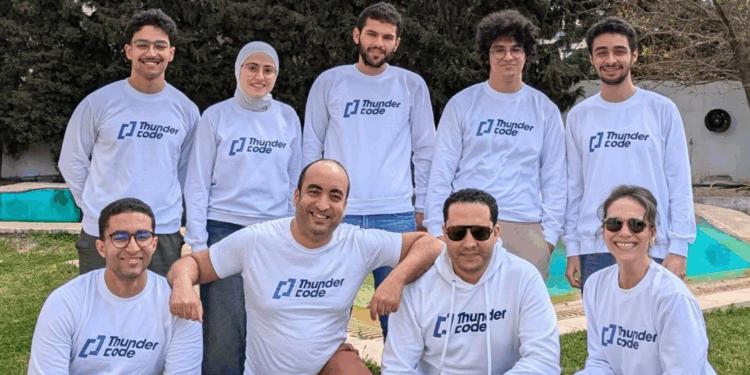On Wednesday, Tunisian-French founders Karim Jouini and Jihed Othmani announced they had raised $9 million in seed funding for Thunder Code, their AI-powered software testing startup.
In under six months, the duo, known for building and exiting Expensya in a $120+ million acquisition by Sweden’s Medius, is now targeting one of tech’s most persistent pain points: slow and outdated quality assurance (QA) testing.
With pilot clients already live across the U.S., Canada, France, and Tunisia, Thunder Code is moving fast, and investors are betting big on its potential to redefine how software is tested globally.
Experienced startup founders secure major seed funding for Thunder Code
Backed by notable investors including Silicon Badia, Jaango Capital, and Titan Seed Fund, the round also features high-profile angels like Roxanne Varza (Director, Station F) and Karim Beguir (CEO, InstaDeep).
Thunder Code’s seed round is unusually large for a company still in its infancy, reflecting strong trust in the founders’ vision, especially from former Expensya employees who reinvested their own acquisition earnings into the new venture.
Jouini and Othmani bring a rare combination of operational scale and technical depth. While Jouini now leans into product and strategy after serving as Medius’ CTO, Othmani draws on years of AI research and development experience from his time at Expensya.
The core idea behind Thunder Code emerged from a common bottleneck Jouini experienced while integrating software companies: software testing was slow, manual, and resource-heavy. Seeing how generative AI could fix this, the founders jumped back into the startup world with renewed urgency.
AI-powered agents set to transform QA testing market
Thunder Code uses generative AI “agents” to automate QA processes, replacing tedious manual testing with intelligent bots that simulate user behaviour, spot subtle UX and UI issues, and learn from feedback.
The current version focuses on web application testing but will soon expand into mobile, desktop, and API testing by the end of 2025.
The startup’s product reached MVP status just six weeks after development began—part of a fast-paced strategy to stay ahead of legacy platforms like Tricentis and BrowserStack.
The broader market opportunity is massive: global software testing is projected to exceed $100 billion by 2027, yet most of it remains dominated by slow-moving tools reliant on complex scripting.
Thunder Code’s fast execution, real customer traction, and lean AI-powered approach position it as a serious contender in the emerging category of agentic AI tools.
Thunder Code balances speed, talent, and global vision
Jouini is clear about avoiding past startup mistakes: this time, he’s prioritising speed to market, elite hiring, and core product utility over maintaining large founder equity. A smaller piece of a billion-dollar pie is better than full control of a stalled company, he’s said.
The company’s headquarters in Paris and secondary office in Tunis reflect its global ambition, blending European SaaS maturity with North African tech talent. Thunder Code is already working with QA teams and developers eager to reduce testing costs and ship faster.
With its unique mix of execution speed, technical firepower, and strategic clarity, Thunder Code isn’t just chasing market share—it’s aiming to lead a major shift in how QA testing is done in the AI era.










